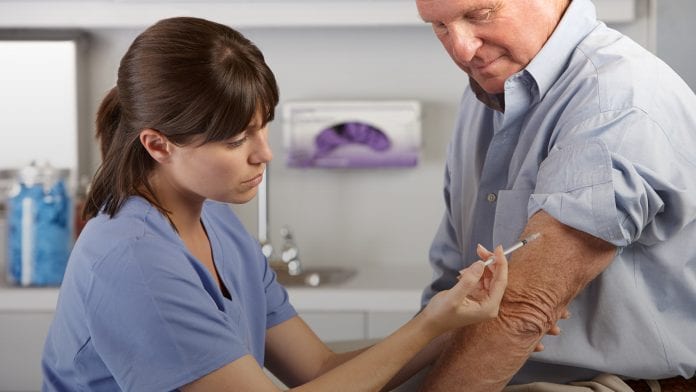
COVID-19 infection rates in England are three times lower in double vaccinated people, the findings from the recent REACT-1 report have revealed.
The latest findings from the REACT-1 study into COVID-19 infections in England, conducted by Imperial College London and Ipsos MORI, show that infections in England have increased fourfold from 0.15% to 0.63% since the last REACT-1 report, which covered the period from 20 May to 7 June. However, infection rates were three times lower for double vaccinated people compared to those who were unvaccinated.
Researchers analysed data collected from over 98,000 volunteers in England who took part in the study between 24 June and 12 July. The findings indicate that the virus spread was slowing as of 12 July, and analysis by Imperial College London suggests that double vaccinated people are also less likely to transmit the virus to others.
Health and Social Care Secretary Sajid Javid said: “Our vaccination rollout is building a wall of defence that means we can carefully ease restrictions and get back to the things we love, but we need to be cautious as we learn to live with this virus.
“Today’s report shows the importance of taking personal responsibility by self-isolating if you are contact traced, getting tested if you have symptoms and wearing face coverings where appropriate.
“I urge anyone who has yet to receive a vaccine to get jabbed and take up both doses – the vaccines are safe, and they are working.”
Unvaccinated three times more likely to test positive for COVID-19
The main findings from the study showed that one in 160 people tested positive for COVID-19, revealing a more than fourfold increase since the last full report. Unvaccinated people were three times more likely than fully vaccinated people to test positive for COVID-19, with prevalence at 1.21% compared to 0.40%. The risk of infection for double vaccinated people in this latest round was estimated to be 50 to 60% lower than unvaccinated people.
Vaccine Deployment Minister Nadhim Zahawi said: “Today’s results show the positive impact of the vaccination programme, with those who are double jabbed three times less likely than unvaccinated people to get the virus and less likely to pass on this awful disease to those around them.
“We must continue our phenomenal progress – my message to anyone who has not yet been vaccinated is please come forward, to protect yourself, your family and your community.”
All those aged 18 and over can book their vaccination through the NHS booking service, and all adults have been offered their first dose.
Caution urged
Professor Paul Elliott, Director of the REACT programme from Imperial’s School of Public Health, said: “These findings confirm our previous data showing that both doses of a vaccine offer good protection against getting infected. However, we can also see that there is still a risk of infection, as no vaccine is 100% effective, and we know that some double vaccinated people can still become ill from the virus. So, even with the easing of restrictions, we should still act with caution to help protect one another and curb the rate of infections.”
Kelly Beaver, Managing Director, Public Affairs at Ipsos MORI, said: “Today’s results are a stark reminder of the importance of getting vaccinated against COVID-19, with those unvaccinated three times more likely to test positive in this round than those who are fully vaccinated. This is underscored by the indications in this report that fully vaccinated people are less likely to transmit the virus to others, an important development in understanding how we can beat the virus.”
This report is the latest from the REACT-1 study, which was commissioned by the Department of Health and Social Care and carried out by a team of scientists, clinicians, and researchers at Imperial College London, Imperial College Healthcare NHS Trust, and Ipsos MORI.
























